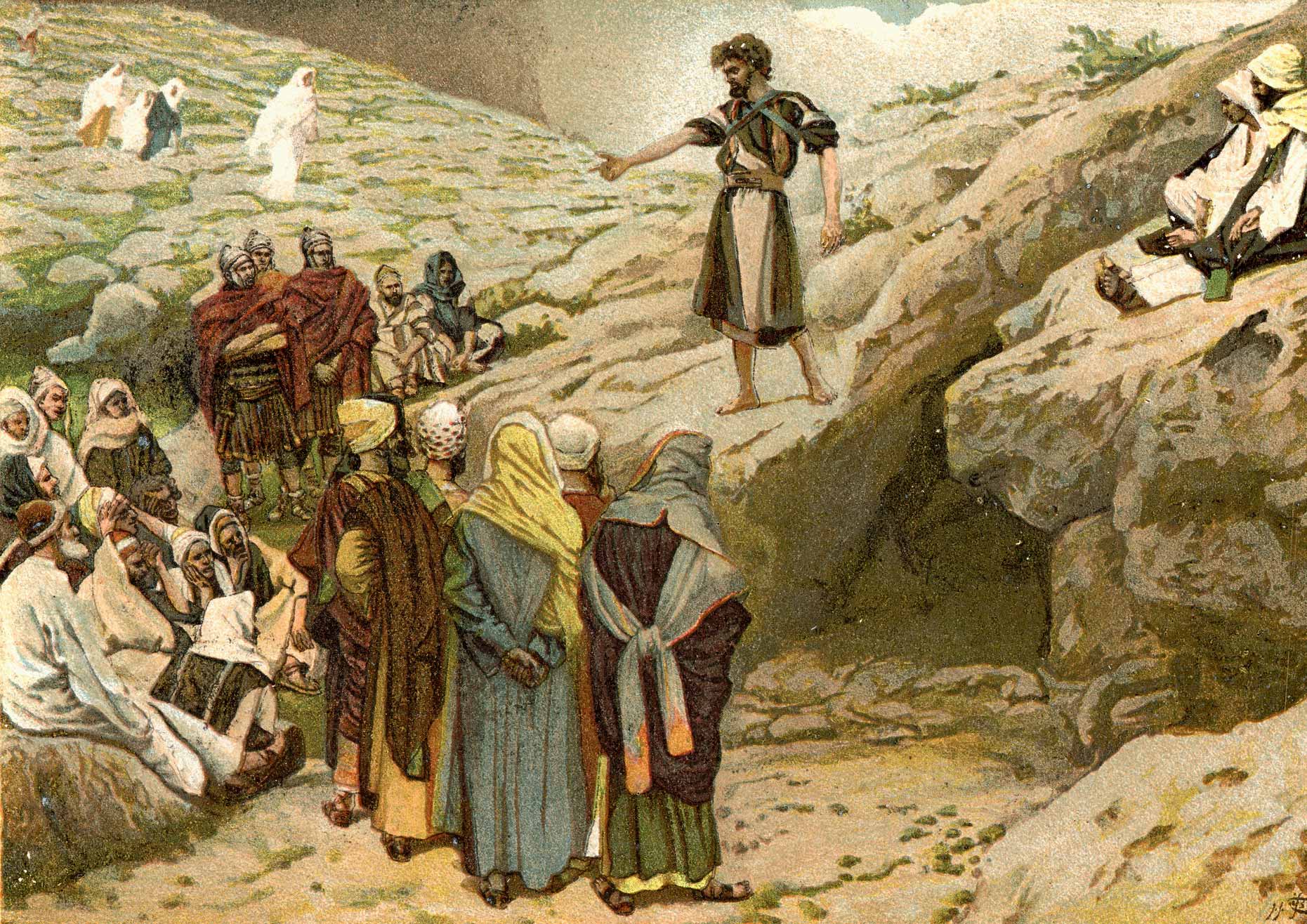GAUDETE SUNDAY
First Reading: Zeph 3:14-18a; Psalm: Is 12. R. v. 6; Second Reading: Phil 4:4-7; Gospel: Lk 3:10-18
“WHAT THEN SHALL WE DO?”
BY FR VALENTINE NNAMDI EGBUONU, MSP

The preaching of the Baptist that started a while ago is beginning to bear visible fruits. Just last Sunday, the Baptist started his preaching of baptism for the forgiveness of sins crying out in the words of the prophet Isaiah, “Prepare the way of the Lord, make his paths straight” (v 4). In the preceding verses of today’s gospel, the Baptist also warned the people not to presume salvation as descendants of Abraham but must show fruits that befit repentance to be saved. There will be consequences if they turned down his call for repentance. He warned, “Even now the axe is laid to the root of the trees; every tree therefore that does not bear good fruit is cut down and thrown into the fire” (v 9). The people were cut to the heart at the warning of the Baptist that they began to ask, “What then shall we do?”
“What then shall we do?” is more than just a question. It is a positive response to the Baptist’s call for repentance. It is that response and readiness of a neophyte to try new things; that vigour of a beginner to write new and beautiful stories on a fresh page. As Scott Hahn said, repentance is a radical life-change involving a two-fold “turning” – Away from sin and toward God for His mercy and acceptance. And it requires “good fruits” as evidence of our repentance. The question “What then shall we do?” highlights the people’s desire to bear good fruits as evidence of their repentance.
To the multitudes the Baptist answered, “He who has two coats, let him share with him who has none; and he who has food, let him do likewise.” To the Tax collectors he said, “Collect no more than is appointed you.” And to the Soldiers he said, “Rob no one by violence or by false accusation, and be content with your wages.” The Baptist was simply telling the people to be charitable and responsible, not bending the rules but true to their vocations. Probably, the people were expecting a humongous task from the Baptist, but surprisingly it was nothing more than being faithful to what they are called to do on daily basis. If truly they have repented from their old ways, then it must reflect in the fruits of their actions.
From the Baptist’s admonition to the people we can see that the call to repentance does not require us to do anything extraordinary but the ordinary things of life we often neglect for selfish reasons. The Baptist saw a grasping community unwilling to share and encouraged them to embrace charity and generosity. He saw the corrupt practices of tax collectors and challenged them to desist from extorting the people. He noticed the brutality of soldiers and chastised them to be content and act accordingly. Our selfishness is the pain the other person suffers. Selflessness eliminates greed, pain and suffering.
We might as well ask, “What then shall we do?” And if the Baptist were to respond to this question in our present day, he will simply ask us to be selfless and faithful in our various vocations, to look around our environs to see what is amiss and to take immediate action to fix them.
The Baptist would say: priests, be exemplary and available to the people of God. Spouses, live your marriage in love and mutual forgiveness. Parents, love your children and be there for them. Children, be obedient and submissive to your parents. Doctors and nurses, be professional and caring to your patients. Teachers, treat and instruct your students as though they are your own children. Employers, be fair in your relationship and treatment to your employees. Employees, be responsible and respectful to your employers. Security officers, be humane and professional in your duties. Politicians, be honest and respect the will of the people. Political leaders, be servant leaders who pursue the good of the led. Citizens, be responsible and exercise your civic duties. We can go on and on. If today we take on board the admonition of the Baptist, then our actions must bear good fruits of repentance.
As we are halfway to Christmas, the Baptist also reminds us to learn to share with those who do not have, so that the joy of the coming Christmas may be felt in every heart and home. Our extra coat is not all about fabrics. It could be the extra things we can do by going out of our usual routine. We could visit a sick neighbour, call an old friend, share a meal with family, smile and laugh more as we speak with people. Just something good and new about us could be an extra coat offered to those who encounter us. We can also share food and gifts to those in most need of them. In doing this, we become promoters of joy bearing fruits from the message of today when we celebrate the Gaudete Sunday; a Sunday we rejoice because our salvation is near.
PRAYER FOR THE DAY
Lord Jesus, we pray for the docility to accept your call for repentance through the voice of the Baptist that our world may rejoice at the joy of new life. Amen.



Amen.
Beautifully said. May God bless you the more. 🙏
Amen.